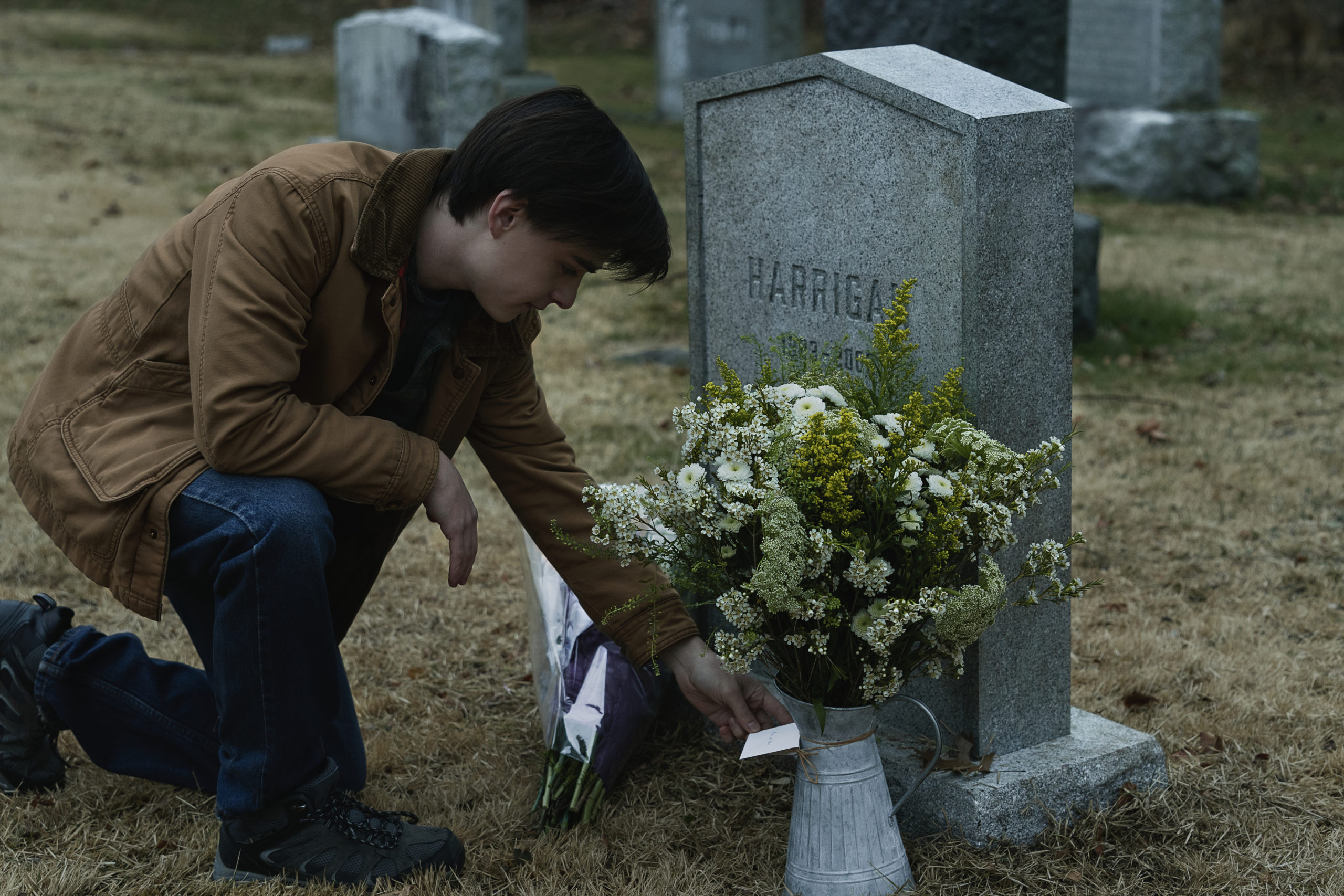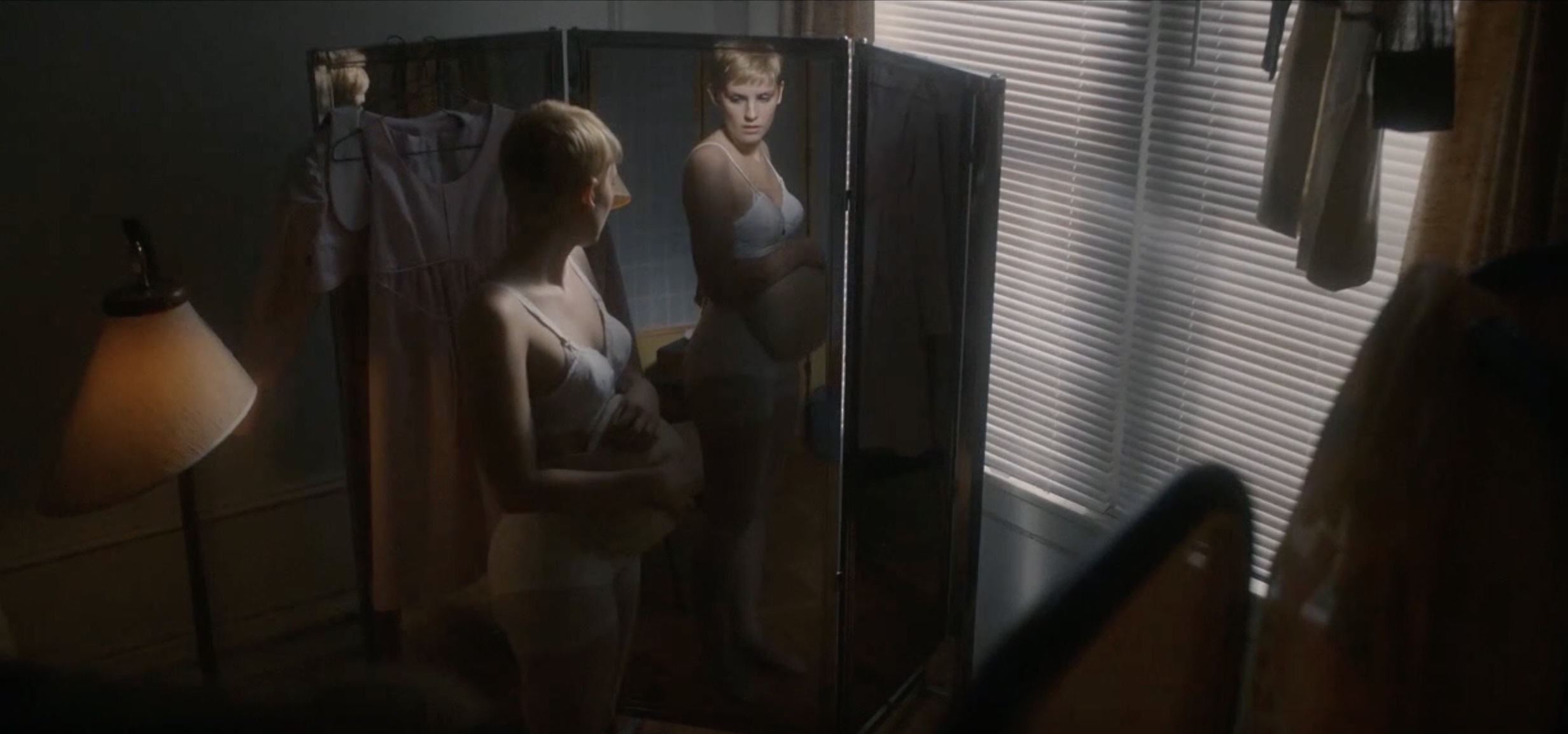Reviews
‘Mr. Harrigan’s Phone’ Review – Adaptation of Stephen King Novella Is an Affecting But Uneven Morality Tale

Bloody Disgusting’s review of Mr. Harrigan’s Phone is spoiler-free.
Stephen King’s work captures sentimentality and the minutia of small-town life well, effectively building the horror from the nostalgic and mundane. In Netflix‘s adaptation of Mr. Harrigan’s Phone, a novella from 2020’s If It Bleeds, a quaint coming-of-age story gets blended with the dangerous pitfalls of technology. The focus on the former and an emphasis on the details over the story or scares make for an uneven though frequently poignant journey.
Reclusive billionaire Mr. Harrigan (Donald Sutherland) hires a young boy, Craig (Jaeden Martell), to read to him a few times a week. Mr. Harrigan’s ruthless business practices in his younger years left him without friends, and his elder age means his eyesight isn’t what it once was. The pair form an unlikely bond that begins with a shared love of books that only deepens over the years. Craig even brings Mr. Harrigan into the modern world when he buys and then teaches his old friend how to use an iPhone. When Mr. Harrigan passes away, Craig discovers that some connections never fade as he’s able to communicate from beyond the grave.

Mr. Harrigan’s Phone. (L-R) Jaeden Martell as Craig and Donald Sutherland as Mr. Harrigan in Mr. Harrigan’s Phone. Cr. Nicole Rivelli/Netflix © 2022
The Blind Side and Saving Mr. Banks writer/director John Lee Hancock makes an excellent choice to helm this adaptation when exploring the tender relationship between two lonely souls. The first half of the film nurtures the details behind this central friendship. Craig lost his mother not long before crossing paths with Mr. Harrigan, and his dad (Joe Tippett) feels more lost without her than he. Then he enters the tumultuous high school age just after the turn of the century. The advent of smartphones creates a whole new layer of social complications.
Much like the source novella, Mr. Harrigan’s Phone plays out in two distinctly different halves. The first half, pre-death, adheres closer to King’s affecting non-horror stories like Stand by Me. The second slowly introduces the supernatural element, with Craig forced to grapple with the consequences of communicating with his dead friend. It’s in this back half that the story spins away from Hancock’s careful control.

Mr. Harrigan’s Phone. (L-R) Jaeden Martell as Craig and Cyrus Arnold as Kenny Yankovich in Mr. Harrigan’s Phone. Cr. Nicole Rivelli/Netflix © 2022
With Sutherland out of the equation, the film rests on Martell and a few cryptic iPhone messages to carry the weight of that central friendship. Hancock prefers to keep any supernatural rules vague and unexplored, instead opting to frame any moral lessons learned strictly from Craig’s youthful perspective. Craig contends with first crushes, high school bullies, and even more tragedy. This dovetails with a “be careful what you wish for” style of lowkey horror and a methodical unfurling of Mr. Harrigan’s past. All these various and loosely connected plot points don’t congeal nearly as neatly or cohesively as the film’s focused first half. The back half has an anemic quality as it drifts through Craig’s adolescence like a passive spectator.
Donald Sutherland winds up serving as the glue that holds this feature together. The tenured actor plays well off Martell, and both succeed in instilling emotional investment in the oddball friendship. There’s an inherent sweetness to that bond between the reclusive billionaire and lost little boy, but Sutherland balances that genuine affection with underlying cruelty. That portrayal sets up the entire back half as Mr. Harrigan imparts supernatural lessons of vindictiveness. But without Sutherland’s gravitas, Hancock struggles to convey the terrors of karma or the double-edged sword of technology. A strong start tapers off into a quiet and uneven morality fable that’s ultimately too vague to make an impact.
Netflix releases Mr. Harrigan’s Phone on October 5, 2022.


Reviews
“AHS: Delicate” Review – “Little Gold Man” Mixes Oscar Fever & Baby Fever into the Perfect Product

‘AHS: Delicate’ enters early labor with a fun, frenzied episode that finds the perfect tone and goes for broke as its water breaks.
“I’ll figure it out. Women always do.”
American Horror Story is no stranger to remixing real-life history with ludicrous, heightened Murphy-isms, whether it’s AHS: 1984’s incorporation of Richard Ramirez, AHS: Cult’s use of Valerie Solanas, or AHS: Coven’s prominent role for the Axeman of New Orleans. Accordingly, it’s very much par for the course for AHS: Delicate to riff on other pop culture touchstones and infinitely warp them to its wicked whims. That being said, it takes real guts to do a postmodern feminist version of Rosemary’s Baby and then actually put Mia Farrow – while she’s filming Rosemary’s Baby, no less – into the narrative. This is the type of gonzo bullshit that I want out of American Horror Story! Sharon Tate even shows up for a minute because why the hell not? Make no mistake, this is completely absurd, but the right kind of campy absurdity that’s consistently been in American Horror Story’s wheelhouse since its inception. It’s a wild introduction that sets up an Oscar-centric AHS: Delicate episode for success. “Little Gold Man” is a chaotic episode that’s worth its weight in gold and starts to bring this contentious season home.
It’d be one thing if “Little Gold Man” just featured a brief detour to 1967 so that this season of pregnancy horror could cross off Rosemary’s Baby from its checklist. AHS: Delicate gets more ambitious with its revisionist history and goes so far as to say that Mia Farrow and Anna Victoria Alcott are similarly plagued. “Little Gold Man” intentionally gives Frank Sinatra dialogue that’s basically verbatim from Dex Harding Sr., which indicates that this demonic curse has been ruffling Hollywood’s feathers for the better part of a century. Anna Victoria Alcott’s Oscar-nominated feature film, The Auteur, is evidently no different than Rosemary’s Baby. It’s merely Satanic forces’ latest attempt to cultivate the “perfect product.” “Little Gold Man” even implies that the only reason that Mia Farrow didn’t go on to make waves at the 1969 Academy Awards and ends up with her twisted lot in life is because she couldn’t properly commit to Siobhan’s scheme, unlike Anna.
This is easily one of American Horror Story’s more ridiculous cold opens, but there’s a lot of love for the horror genre and Hollywood that pumps through its veins. If Hollywood needs to be a part of AHS: Delicate’s story then this is actually the perfect connective tissue. On that note, Claire DeJean plays Sharon Tate in “Little Gold Man” and does fine work with the brief scene. However, it would have been a nice, subtle nod of continuity if AHS: Delicate brought back Rachel Roberts who previously portrayed Tate in AHS: Cult. “Little Gold Man” still makes its point and to echo a famous line from Jennifer Lynch’s father’s television masterpiece: “It is happening again.”
“Little Gold Man” is rich in sequences where Anna just rides the waves of success and enjoys her blossoming fame. She feels empowered and begins to finally take control of her life, rather than let it push her around and get under her skin like a gestating fetus. Anna’s success coincides with a colossal exposition dump from Tavi Gevinson’s Cora, a character who’s been absent for so long that we were all seemingly meant to forget that she was ever someone who was supposed to be significant. Cora has apparently been the one pulling many of Anna’s strings all along as she goes Single White Female, rather than Anna having a case of Repulsion. It’s an explanation that oddly works and feeds into the episode’s more general message of dreams becoming nightmares. Cora continuing to stay aligned with Dr. Hill because she has student loans is also somehow, tragically the perfect explanation for her abhorrent behavior. It’s not the most outlandish series of events in an episode that also briefly gives Anna alligator legs and makes Emma Roberts and Kim Kardashian kiss.

“Little Gold Man” often feels like it hits the fast-forward button as it delivers more answers, much in the same vein as last week’s “Ava Hestia.” These episodes are two sides of the same coin and it’s surely no coincidence that they’re both directed by Jennifer Lynch. This season has benefitted from being entirely written by Halley Feiffer – a first for the series – but it’s unfortunate that Lynch couldn’t direct every episode of AHS: Delicate instead of just four out of nine entries. That’s not to say that a version of this season that was unilaterally directed by Lynch would have been without its issues. However, it’s likely that there’d be a better sense of synergy across the season with fewer redundancies. She’s responsible for the best episodes of AHS: Delicate and it’s a disappointment that she won’t be the one who closes the season out in next week’s finale.
To this point, “Little Gold Man” utilizes immaculate pacing that helps this episode breeze by. Anna’s Oscar nomination and the awards ceremony are in the same episode, whereas it feels like “Part 1” of the season would have spaced these events out over four or five episodes. This frenzied tempo works in “Little Gold Man’s” favor as AHS: Delicate speed-runs to its finish instead of getting lost in laborious plotting and unnecessary storytelling. This is how the entire season should have been. Although it’s also worth pointing out that this is by far the shortest episode of American Horror Story to date at only 34 minutes. It’s a shame that the season’s strongest entries have also been the ones with the least amount of content. There could have been a whole other act to “Little Gold Man,” or at the least, a substantially longer cold open that got more out of its Mia Farrow mayhem.
“Little Gold Man” is an American Horror Story episode that does everything right, but is still forced to contend with three-quarters of a subpar season. “Part 2” of AHS: Delicate actually helps the season’s first five episodes shine brighter in retrospect and this will definitely be a season that benefits from one long binge that doesn’t have a six-month break in the middle. Unfortunately, anyone who’s already watched it once will likely not feel compelled to experience these labor pains a second time over. With one episode to go and Anna’s potential demon offspring ready to greet the world, AHS: Delicate is poised to deliver one hell of a finale.
Although, to paraphrase Frank Sinatra, “How do you expect to be a good conclusion if this is what you’re chasing?”















You must be logged in to post a comment.